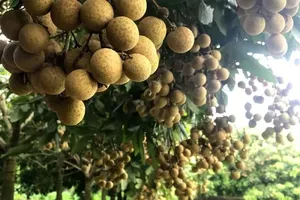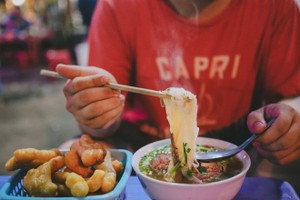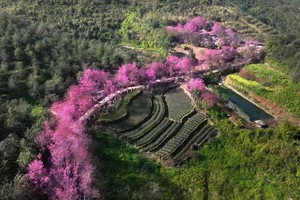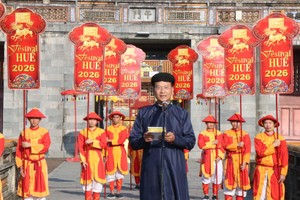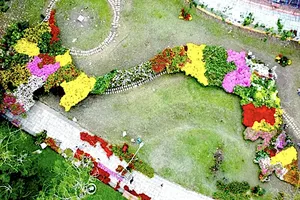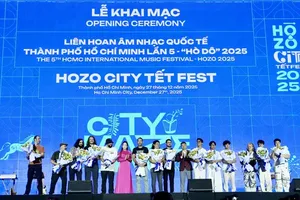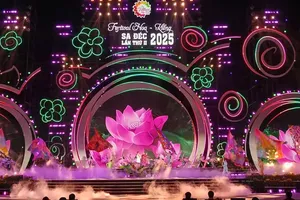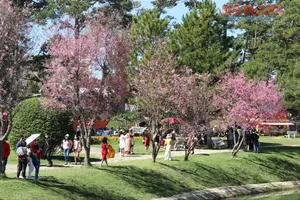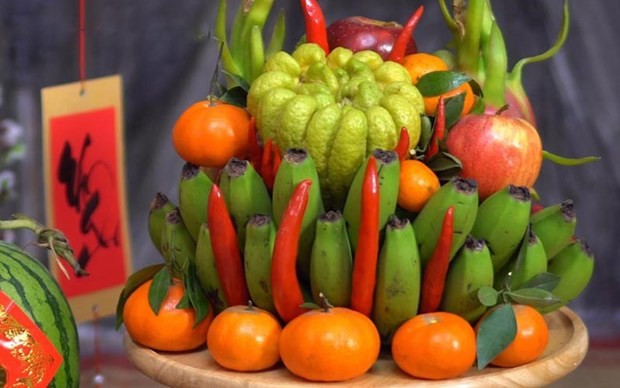
Among the numerous offerings that are required to decorate ancestral altars during the traditional New Year, a five-fruit tray is indispensable for each Vietnamese family. It is a symbol of the wholeheartedness and filial piety of the present generation towards their ancestors and the genie of the land.
The common five-fruit tray is usually composed of five types of fruits with different colours symbolising the five elements - Metal, Wood, Water, Fire and Earth.
The East Asian and Southeast Asian people believe that the number 5 symbolises luck and good things. The number 5 also represents the five blessings that people usually wish to have in the new year - wealth, luxury, long life, health, and peace.
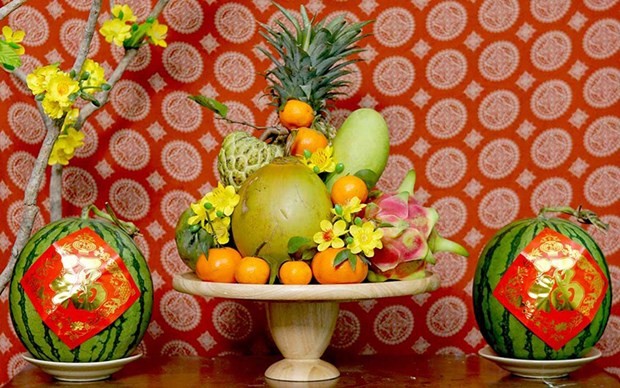
In addition, the fruits chosen for the tray have different meanings. Depending on the climatic characteristics and traditional beliefs of people in each region, the five-fruit tray will include specific fruits.
However, all the fruits on display represent good things and the fruits must be fresh, delicious, and beautiful. Their colours must be harmonious with each other. People usually base on the shape and colour of fruits to translate their symbolic meanings.
In the North, the five-fruit tray often includes banana, pomelo, papaya, persimmon, sapodilla plum, orange, Buddha's hand, figs, and jujube. They believe that a hand of green bananas symbolises family reunion every Tet. The pomelo symbolises success and prosperity, persimmon - wealth and luck. Orange represents health and success. Buddha's hand is shaped like a hand, praying to be blessed by ancestors, God and Buddha in the New Year.
To ensure balance on the tray, one usually places a hand of bananas in the middle with the bananas pointing upright and the pomelo on the concave surface of the bananas. Then one puts the oranges, sapodilla plums, apples in the gaps between the bananas and the pomelo. The last little gaps are filled in with kumquats to create a full, compact tray of fruits. In colours, the fruit tray presents a harmonious combination of the different colours of fruits.
For example, dark green of banana, light yellow of pomelo, deep red of persimmon, reddish‑yellow of orange and kumquat, light green of jujube, and the dark brown of sapodilla plum. To complete the picture, the fruit tray is covered here and there with some small, fresh leaves of kumquat.
Meanwhile, in the central and southern regions, five-fruit trays often include dragon fruit, bananas, watermelon, pineapple, orange, tangerine, custard-apple, figs, coconut, mango, or others.
Southerners often rely on the phenomenon of homonyms to give meanings to each type of fruit on the five-fruit tray. For example, when pronouncing the names of fruits - custard apple, coconut, papaya and mango, it sounds like “cau vua du xai” (praying to have enough money).
Watermelon with a round shape and a sweet taste symbolises good luck in the New Year. Dragon fruit is often selected in the southern five-fruit tray as it is believed to bring good fortune.
Although the fruits on the tray are different in each region, they all express the cultural value of "When eating fruit, remember the fruit growers", showing respect and gratitude to ancestors and praying for a year of peace, good health, and prosperous business.
Moreover, all of the selected fruits have scientifically proven nutritional value. For example, bananas contain vitamins including B6, B12, and folate, which contribute significantly to the production of blood cells. It also contains lots of vitamin C, magnesium, manganese and selenium, vitamin E, and beta-carotene to help strengthen the immune system. The nutritional content of bananas has proven that this fruit is extremely good for human health.
Meanwhile, pomelo contains high levels of vitamin C and is rich in nutrients with antioxidant properties that help detoxify cells. Ripe dragon fruit contains a lot of pectin mucus, soluble fibre and insoluble fibre which are substances that help to prevent and treat constipation, support weight loss, and prevent obesity, atherosclerosis and colitis.

